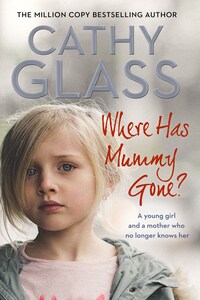I was sure I’d heard it all before …
The child I was being asked to foster had been badly neglected for years by her single mother, who was an intravenous drug user and alcohol dependent. The social services were going to court later that morning to bring the child into care. Melody was eight years of age and had been sleeping on an old stained mattress on the floor of a damp, cold basement flat with her mother, and they were about to be evicted. She hadn’t been attending school, and despite the social services putting in support, there was never any food in the cupboards and she and her mother were often hungry, cold and dirty.
‘She is also very angry,’ Jill, my supervising social worker from the agency I fostered for, continued over the phone. The referral from the social services had come through her.
‘The mother is angry?’ I asked.
‘Yes, and Melody – her child – is too. She tried to kick and thump the social worker when she visited yesterday and threw something at her when she began talking to her mother. The social worker will take a police officer with her when she removes Melody, assuming the care order is granted.’
‘Is there any doubt?’
‘There shouldn’t be, but you never can tell. It will depend on the judge. The case is in court shortly, so it’s likely to be early afternoon before they are with you.’
‘All right.’ Forcibly removing a child from their home wasn’t a good start, but if the parent wasn’t cooperating there was no alternative. The mother had been given plenty of opportunities to sort out her life and parent her daughter properly but had repeatedly failed.
‘Amanda, the mother, can’t control Melody,’ Jill said. ‘She’s failed to put in place any boundaries and Melody can easily become angry. One social worker described her as feral.’
One of the reasons I had been asked to foster Melody was because I had years of fostering experience, much of it working with children with challenging behaviour, and I knew why Melody was angry. Even though she had been living in appalling conditions and had not been looked after, she was being taken away from the mother she knew and loved.
‘She’s very loyal and protective of her mother,’ Jill continued, ‘and won’t hear any criticism of her. They both hate social workers. Melody does as she likes and is very much the one in control.’ Again, this wasn’t unusual for a child who’d had to raise herself.














